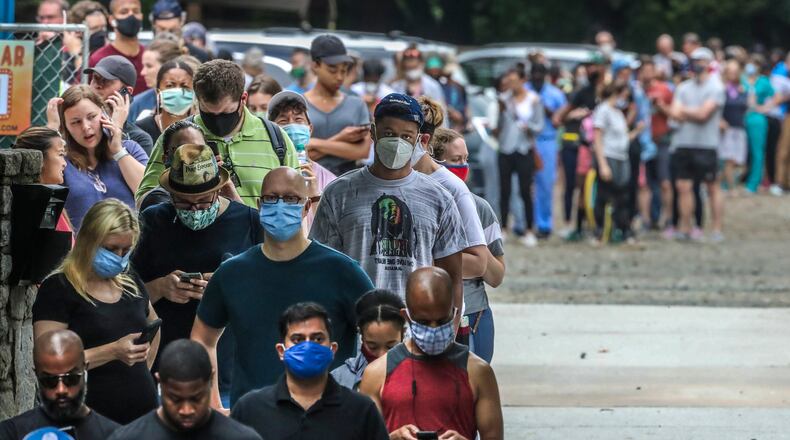Judges on the Georgia Court of Appeals questioned Wednesday why they should allow a lawsuit alleging fraud in the 2020 election to continue after a lower court threw out the case.
The appellate court hearing was the latest attempt by several voters to inspect paper absentee ballots in Fulton County so they can search for alleged counterfeit votes. Election investigators conducted their own review that couldn’t find any illegitimate ballots.
“You’re alleging ... that there are various discrepancies that caused some suspicion, at least in the minds of the plaintiffs, that there might have been some misconduct. But there’s no evidence that that’s actually occurred, right?” Presiding Judge Christopher McFadden said during the 30-minute oral argument.
An attorney for the plaintiffs responded that they need the courts to allow them to look for evidence of suspicious ballots. Republican auditors reported they saw “pristine” ballots with perfectly filled-in ovals or no fold lines during a manual recount. Their claims remain unverified.
Credit: Georgia Court of Appeals
Credit: Georgia Court of Appeals
The appeal is a last-ditch effort to conduct an independent review of ballots after Republican Donald Trump lost to Democrat Joe Biden in Georgia by about 12,000 votes. State election officials have upheld the results based on three ballot counts and multiple investigations.
A superior court judge dismissed the case in the fall based on the legal principle of standing, finding that plaintiffs hadn’t suffered a specific injury that would give them a right to sue. On appeal, the plaintiffs say their votes would have been illegally diluted if there were counterfeit ballots.
Defense attorney Don Samuel asked the appeals court to uphold the lower court’s ruling because the plaintiffs have failed to show they suffered any individual harm.
“Every single one of the petitioners had one vote. Nobody was deprived of their right to have one vote,” said Samuel, who represents members of the Fulton elections board. “Every candidate for whom they voted received one vote, whether they voted for President Biden or President Trump.”
Paul Kunst, attorney for the plaintiffs, said the courts need to ensure that voters can sue when they doubt the accuracy of elections. The case was filed by several voters, led by Garland Favorito of the group VoterGA.
“The public policy implications in this case are huge. Confidence in the integrity of our electoral process is essential to the functioning of our participatory democracy,” Kunst said. “Nothing would boost or restore confidence in the American people more than to let the case move forward.”
While original paper ballots remain confidential government records, digital images of absentee ballots have been made public.
The ballot images don’t contain the kind of perfectly filled-in ovals and lack of fold marks that the plaintiffs had alleged.
The three-judge panel of the Court of Appeals didn’t immediately rule on the case. A decision could come this summer.
About the Author
Keep Reading
The Latest
Featured





